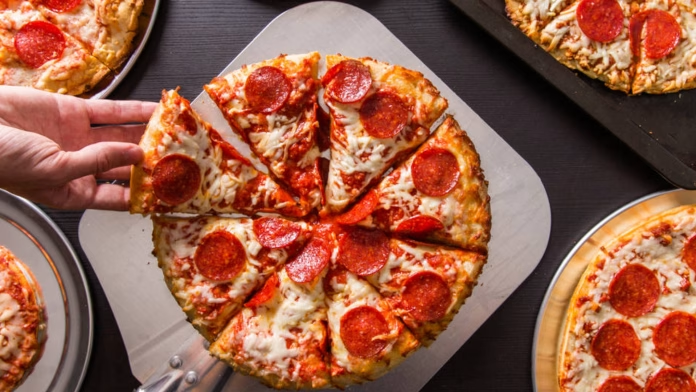Frozen pizza is a popular convenience food enjoyed by millions of people around the world. It is quick and easy to prepare and can be a tasty option for a quick meal or snack. However, recent studies have raised concerns about the potential health risks associated with consuming frozen pizza regularly.
Here is what the experts think about why your favorite frozen pizza may be putting you at risk.
Excessive Sodium Content:
One of the biggest concerns with frozen pizza is its high sodium content. Sodium is an essential nutrient that helps regulate fluid balance in the body and maintain proper nerve and muscle function. However, consuming too much sodium can lead to a variety of health problems, including high blood pressure, heart disease, stroke, and kidney disease.
Many frozen pizzas are loaded with sodium, often containing more than half of the recommended daily intake in just one serving. This is because the dough, sauce, cheese, and toppings used in frozen pizza are often high in sodium. In addition, some frozen pizzas contain added salt and sodium-containing preservatives to improve flavor and extend shelf life.
The American Heart Association recommends that adults consume no more than 2,300 milligrams of sodium per day, with an ideal limit of 1,500 milligrams per day for most adults. However, many frozen pizzas contain well over 1,500 milligrams of sodium per serving, making it difficult for consumers to stay within the recommended limits.
Unhealthy Fats and Calories:
In addition to its high sodium content, frozen pizza is often high in unhealthy fats and calories. Most frozen pizzas are made with refined flour, which is low in nutrients and can cause spikes in blood sugar levels. They are also typically high in saturated and trans fats, which can increase the risk of heart disease, stroke, and other health problems.
Many frozen pizzas also contain high-calorie toppings like pepperoni, sausage, and extra cheese, which can further contribute to weight gain and other health issues. A single serving of some frozen pizzas can contain as much as 600-800 calories, which is a significant portion of the daily calorie needs for most adults.
Processed Ingredients:
Another concern with frozen pizza is the use of processed ingredients. Many frozen pizzas contain additives, preservatives, and other ingredients that are added to improve flavor, texture, and shelf life. These ingredients can be harmful to health and may contribute to a variety of health problems, including inflammation, digestive issues, and even cancer.
For example, many frozen pizzas contain nitrates and nitrites, which are preservatives used to preserve meat products. These chemicals have been linked to an increased risk of cancer, particularly in the digestive system. Additionally, many frozen pizzas contain hydrogenated oils, which are high in trans fats and can contribute to heart disease, stroke, and other health problems.
Other potential health risks associated with frozen pizza include:
- High levels of sugar, can contribute to obesity, diabetes, and other health problems.
- Artificial colors and flavors, which can be harmful to health and may cause allergic reactions.
- High levels of gluten, which can be problematic for people with celiac disease or gluten intolerance.
What the Experts Say?
Many health experts are sounding the alarm about the potential health risks associated with consuming frozen pizza regularly. According to a 2018 study published in the Journal of Food Science and Technology, frozen pizzas were found to contain high levels of sodium, fat, and calories, as well as unhealthy additives and preservatives.
In addition, a 2019 study published in the International Journal of Food Sciences and Nutrition found that consuming frozen pizza was associated with an increased risk of obesity and other health problems, particularly in children and adolescents.
Some experts suggest that consuming frozen pizza in moderation may be okay for most people, but that it should not be a regular part of the diet.
Our Verdict:
While frozen pizza can be a convenient and tasty option for a quick meal or snack, it is important to be aware of its potential health risks. Consumers should pay attention to nutrition labels and choose lower-sodium, lower-fat options whenever possible. Additionally, it is important to consume frozen pizza in moderation and to balance it with a diet that is rich in whole, unprocessed foods.





